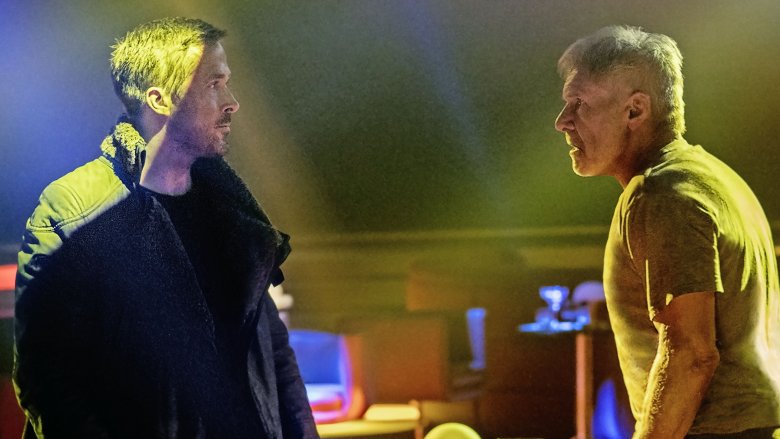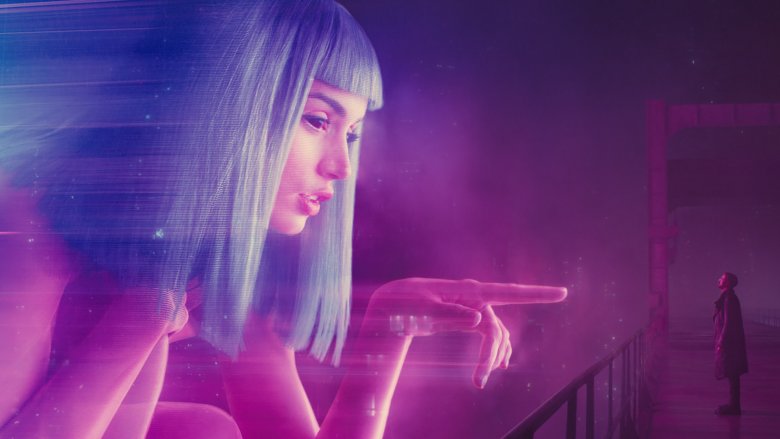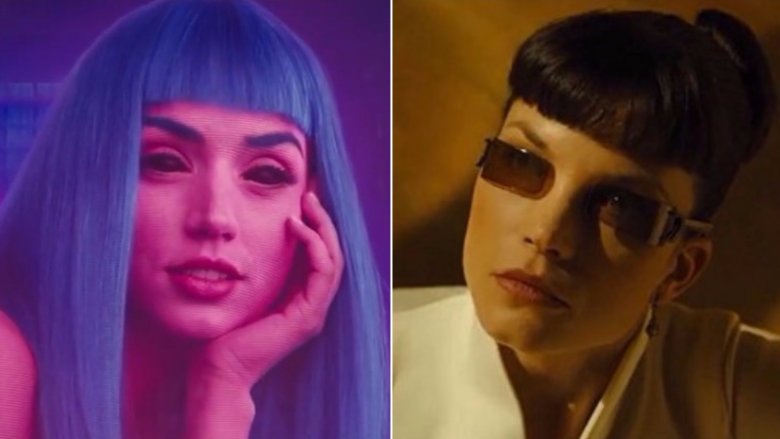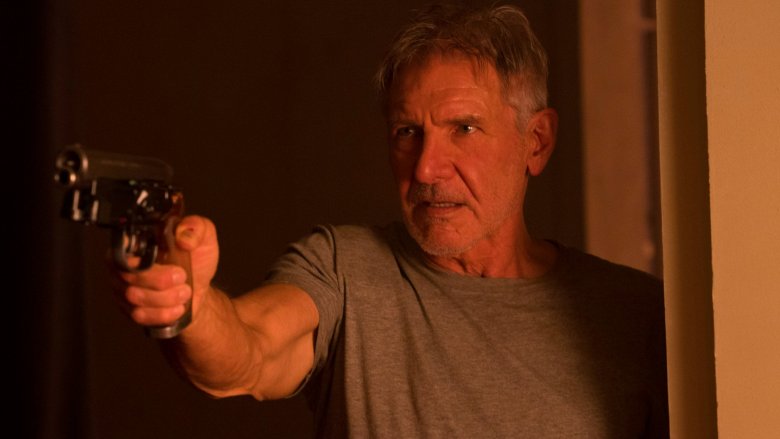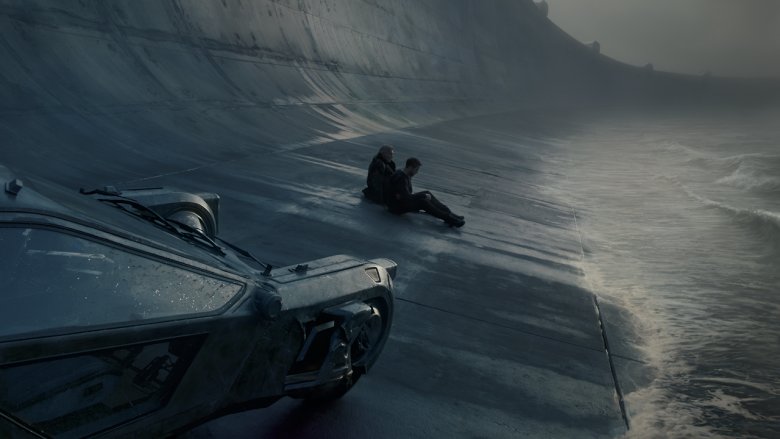The Ending Of Blade Runner 2049 Explained
The ending of the original Blade Runner has been hotly debated by fans for years. A combination of vague hints from director Ridley Scott and all kinds of studio meddling resulted in viewers being split on just what we were supposed to pull from the end of the 1982 sci-fi film. And now that Denis Villeneuve's Blade Runner 2049 has arrived, there's plenty more dystopian ambiguity for viewers to pick apart for years to come. Here are our best guesses and interpretations as to what exactly—probably—the ending of the film really meant, and where the franchise might go from here...or if it'll go anywhere at all.
And it should go without saying: major spoilers ahead.
Decoy Boy
There's a lot in Blade Runner 2049 that simply goes unsaid, meaning that untangling and unpacking some of the plot's details and revelations is going to be a little fuzzy—just like the original. But one thing seems pretty clear by the time the credits roll: Ryan Gosling's character, K, is the decoy Replicant made of Deckard and Rachael's daughter.
We can glean from the clues K follows throughout the story that there is a decoy, and before the big revelation near the end we're meant to think that the decoy was a girl, and was dead. Adding to the potential confusion, the leader of the Replicant rebellion, Freysa, never points her finger at K and says, "you, guy with the weird face—you're definitely the Replicant decoy." Even still, we can piece together just enough information to know who K is, and what role he was always meant to play. K was implanted with Ana's memory of the wooden horse and the orphanage, so if anyone followed the clues to find the missing baby, they'd end up finding K—the boy that was listed as alive.
Of course, as foolproof as the baby-hiding conspirators' plan seemed to be, they didn't count on their decoy actually becoming a detective and tracking down all the clues himself to find...himself. And, well, no one would've known to find that wooden horse at the orphanage if they didn't have that memory implanted...which means that no one would've ever found Deckard...which means that his daughter would've stayed hidden if K had never existed at all...
Man! What a lousy coincidence.
Genuine Joi
Blade Runner's whole schtick has always been asking about what it means to be human. What defines life? Is a person a person only if he or she comes from standard babymaking procedures? Are we more than the sum of our biology? These are the great questions that have made Blade Runner—and now Blade Runner 2049—a favorite among fans who like their sci-fi with a side of brains.
But in all the excitement of meeting K, unearthing Deckard in Vegas, and lots of punching in the rain, one character's journey into humanity should definitely not be overlooked. Joi, played by Ana de Armas, is K's holographic girlfriend, an artificial intelligence he bought from the big robot store run by Jared Leto's creepy Niander Wallace. As the story progresses, we see Joi transform into a true companion for K, right up until Luv stomps on her emanator, killing her just as she's telling K she loves him. Later on, K sees an advertisement for Joi, and he starts to doubt whether or not she—and her feelings—were ever real at all. And those are the very same kinds of questions he's asking about himself, you'll recall.
It's impossible to say with certainty whether Joi had real feelings for K. But both movies ask us to take K and the other Replicants' quest for humanity and personhood as something that's plausibly attainable—despite the fact that they're made in a factory and implanted with memories and programmed. And if we do, then we have to also believe that Joi is capable of the same growth as an actual person, regardless of whether or not she's got an actual body.
What's in a name?
When it comes to movies, nothing's accidental. As such, it's impossible to look at the names of two of Blade Runner 2049's most prominent female characters—Luv and Joi—and not see them as highly symbolic. Joi was something that K longed for, and could only find as a prepackaged product that he could buy. Ultimately, Joi was something he could only see and hear, but never touch. Joi, it seemed, was something that K always craved but could never truly possess. And by the end, his Joi is crushed by Luv.
And Luv, as we see throughout the film, is both beautiful and cruel. By the end, K literally grapples with Luv and drowns her, all to save Deckard and reunite him with his daughter. Once Luv is dispatched, K has let go of his own desire to have real, human love of another person. He fully accepts that he's going to let Deckard live—against the wishes of Freysa and the Replicant underground. For Deckard's love to live, he has to destroy Luv himself.
The Deckard question
If you thought Blade Runner 2049 would settle the Deckard debate once and for all...well, think again. We've already gone into deep detail about whether or not the original Blade Runner is trying to tell us that Deckard is a Replicant. Director Ridley Scott says he is, while actor Harrison Ford says he isn't. And even though the various non-theatrical cuts of the film heavily imply that Deckard's memories are implants, we're never told for sure.
Well guess what? We don't find out in Blade Runner 2049 either—but there are plenty of insinuations and implications that let viewers speculate. For instance, Deckard tells K that he and Rachael were being hunted, certainly implying that it was because they were two rogue skin-jobs on the run. But the fact that he loved Rachael and then went and fathered her robo-baby is also enough to make anyone—replicant, human, or otherwise—stay in hiding. Wallace, too, suggests that Deckard was programmed to meet and fall in love with Rachael so they could create a baby together. But we never get confirmation that this was what happened in the original movie, and we're left to keep speculating.
In a way, however, it's better that we don't know for sure whether Deckard is a Replicant. After all, the main point of these films is to ask the question of what it means to be human, right? It's not really necessary to be told about Deckard's origins. It's far more interesting and symbolically effective to leave it ambiguous. In fact, wouldn't answering the question kind of ruin the movie?
Another sequel? They Repli-can't resist
For all the discussion we've just had about the ending of Blade Runner 2049, one thing seems pretty clear: there's probably not a lot more to say. But that never stopped Hollywood before—and that's why we're even here talking about this movie at all right now.
Unlike a lot of other films from its era, Blade Runner never really seemed to actually have a whole lot of potential for a sequel. Deckard retired the replicants—or they kind of retired themselves—and he ran away with Rachael to start a new life. We started to ask questions about humanity and the self; questions like "do androids dream of electric sheep?" And we kind of got an answer: "maybe." There didn't seem to be a lot more to explore on the subject.
Villeneuve's sequel raises these questions again, exploring whether you have to be born to have a soul, or if you can truly love another person if you live inside a projector. It seems we're meant to take away the same answers, too. Being a slave sucks. Knowing you're artificial doesn't make you less human. Deckard is kind of a dumb jerk. We know all this. So could we see a Blade Runner 2079? Probably.
If this latest sequel performs well, and its excellent reviews seem to indicate it will, there's no reason to think the studio won't hop to work on making a third movie. One of the best aspects of this film was the way it continued to build the world we only saw hints of in Ridley Scott's original. And leaving Deckard and his daughter Ana alive at the end of the film means Wallace could still find and capture them for his nefarious ends. Moreover, we've got a whole Replicant rebellion waiting to kick off. There's plenty of plot left over for at least a couple more movies, should all the parties involved decide to go for it.
